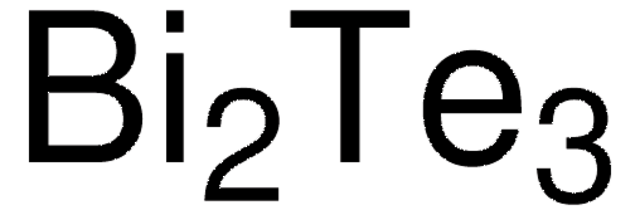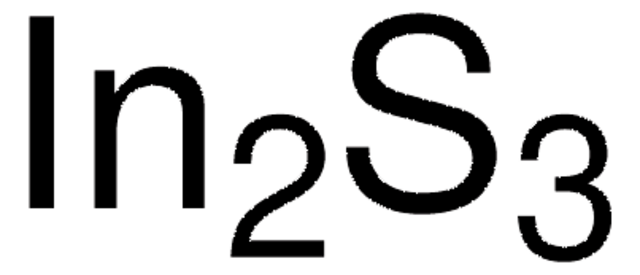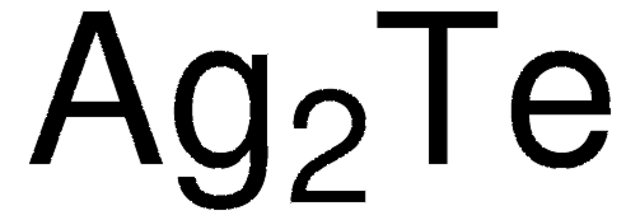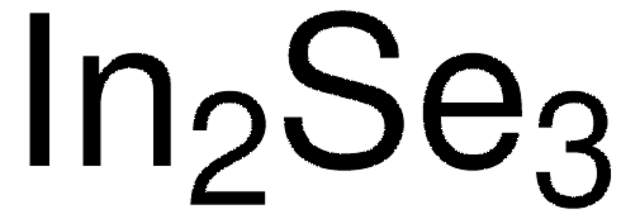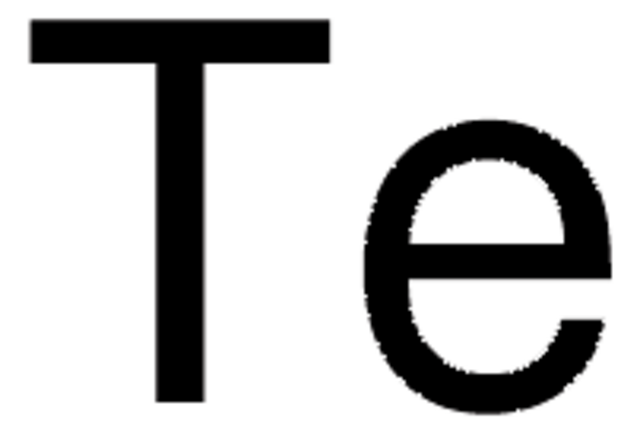About This Item
Recommended Products
assay
99.998% trace metals basis
form
crystals and lumps
greener alternative product characteristics
Design for Energy Efficiency
Learn more about the Principles of Green Chemistry.
sustainability
Greener Alternative Product
mp
905 °C (lit.)
density
8.164 g/mL at 25 °C (lit.)
greener alternative category
, Enabling
SMILES string
[Te]=[PbH2]
InChI
1S/Pb.Te
InChI key
OCGWQDWYSQAFTO-UHFFFAOYSA-N
General description
Application
Packaging
signalword
Danger
Hazard Classifications
Acute Tox. 4 Inhalation - Acute Tox. 4 Oral - Aquatic Acute 1 - Aquatic Chronic 1 - Carc. 2 - Repr. 1A - STOT RE 2
Storage Class
6.1C - Combustible acute toxic Cat.3 / toxic compounds or compounds which causing chronic effects
wgk_germany
WGK 3
flash_point_f
Not applicable
flash_point_c
Not applicable
ppe
Eyeshields, Gloves, type P3 (EN 143) respirator cartridges
Choose from one of the most recent versions:
Already Own This Product?
Find documentation for the products that you have recently purchased in the Document Library.
Customers Also Viewed
Articles
Thermoelectric materials comprise a wide range of solid compounds distinguished by their ability to convert thermal and electrical energy.
In recent years, the price of tellurium, a key component in the bestperforming thermoelectric materials, has increased significantly, leading to the question, “Is it economically viable to produce thermoelectric generators on an industrial scale?
The price of tellurium, a key component in many thermoelectric materials, has risen in recent years, leading to the search for more cost-effective substitutes. This article presents silicide materials as a cheaper potential alternative.
Our team of scientists has experience in all areas of research including Life Science, Material Science, Chemical Synthesis, Chromatography, Analytical and many others.
Contact Technical Service

